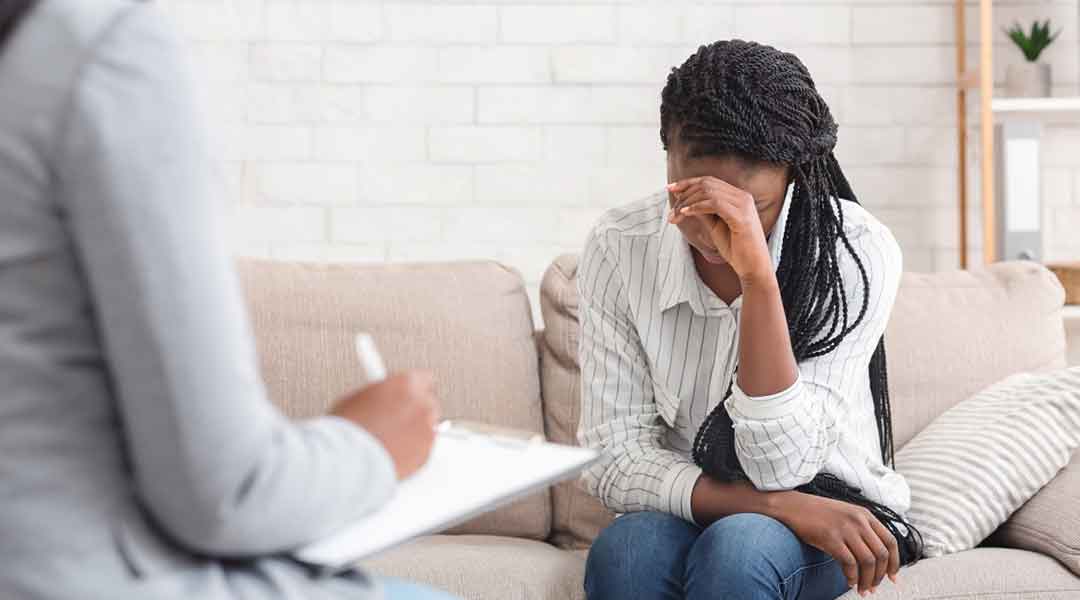Did you know that among the 16.4 percent of the US population who identify as Black American, more than 16 percent have reported a case of mental illness from 2019 to date? That 16 percent equates to almost 7 million Blacks suffering from mental health issues. This amount may appear small in comparison to the overall US population. Still, it represents more people than the combined populations of Houston, Chicago, and Philadelphia.
Black people have suffered from mental health problems since the early days of slavery. And with the ongoing structural racism, microaggressions against blacks, and constant police brutality, the end seems to be far from near.
All these activities happening in black communities take a toll on Black Americans’ mental health. Furthermore, according to Dr. Howard Stevenson of the University of Pennsylvania, witnessing oppression affects everybody. For example, if a police shooting occurs in a community, the people in the area are likely to experience trauma for the next several months.
This fact shows that even when a person isn’t affected directly by the event, the secondary impact of the event still wears down the mental health of the people in the neighborhood. With all these happening in black communities, the fact that Black Americans rarely seek solutions to mental health problems is even more concerning.
Reasons why Black Americans seldom seek solutions to mental health problems
There are several reasons Black Americans do not seek proper treatment for mental health issues. However, aside from seeking assistance from barbershops and religious institutions, the majority of those reasons fall into one of the following categories:
Financial barriers and lack of access: Most Black Americans live below the poverty line. (This is a separate issue in itself, the way that Black Americans are less likely to climb up the income ladder than white Americans.) Sure, they might dress decently in public and put up a strong front. Nonetheless, their incomes can barely run their homes, let alone pay for mental health assistance. Moreover, when they finally seek help, they are often treated differently and provided with inadequate care due to the color of their skin.
Stigmatization: Growing up in a black community, one would often hear phrases like “Therapy is for white people” “Black don’t crack.” These phrases have contributed to the stigmatization of blacks by implying that crying or asking for help is a sign of weakness. As a result, most Black Americans often soldier on and bottle up their feelings, all in the name of being a strong black man or woman.
Lack of trust: Imagine seeking help from someone you regard as your oppressor in the real world. Black Americans make up about 4% of the mental care providers in the US. Sadly, this number is not enough to deal with the ever-growing number of cases of mental health issues in Blacks. And while many Blacks might want to seek assistance for their mental health problems, they often have trust issues with the white professionals they are paired with. And it certainly does not help that Black Americans are more likely to be misdiagnosed with schizophrenia and less often with mood disorders or depression.
Nevertheless, there’s always a solution to every problem. The crucial part is for those who need help to realize that there’s light at the end of the tunnel, and it only takes making that first step.
Mental health Programs for Black Americans That can Lead to a Healthy Lifestyle
Mental health problems might be on the rise in black communities, but the good news is that people all over the country are rising to the task with solutions and programs that can help Black Americans lead a healthy lifestyle. Some of these programs are a combination of yoga (like Sudan Green’s spirits up), meditation, and therapy, while others are standalone therapy sessions. In case you’re wondering how these programs can help you lead a healthy lifestyle, here are a few that could benefit you:
Meditation: Studies have shown that practicing meditation helps manage stress, lowers high blood pressure, and keeps your focus sharp. Applying the mindfulness techniques of meditation promotes your emotional well-being by releasing the negative energy within and around you, leaving you with a feeling of inner peace.
Yoga: Before you start asking how a bunch of poses can help you lead a healthy lifestyle; Yoga is much more than that. Yoga improves flexibility, strengthens the spine, reduces anxiety, depression, and stress, and potentially promotes a healthy eating habit.
Therapy: The sheer act of talking to someone in confidence about your problems or what you’re going through can give you relief. Most times, it feels like taking a heavy burden off your shoulders. Therapy is a combination of that and more. A recent study showed that our efforts create a permanent biological change in our brains. So, by engaging in therapy sessions, we make conscious efforts to process our thoughts and emotions better with the assistance of a trained professional.
We’ve categorized and compiled a list of resources and programs available to all Blacks who need mental health assistance.
Physical Therapy Programs
Melanin and Mental Health: Connects people with competent mental health care providers dedicated to meeting the needs of Black & Latin/Hispanic Communities.
Boris Lawrence Henson Foundation: The BLHF is a non-profit foundation created by Taraji Henson (known popularly as Cookie Lyon from Empire) to decrease the stigma surrounding mental health issues in the Black American community.
The Steve Fund: This is a fund created and dedicated to enhancing the emotional and mental well-being of children of color.
Virtual Therapy Programs
Black mental wellness: Compiles and provides resources and tools on various mental health topics from competent black clinicians.
Heal Haus: Enhances emotional wellness by providing access to workshops, daily yoga, and meditation classes.
Healing Black Women: Healing Black Women is a therapeutic and healing program that promotes wellness and recovery for black women.
Selfcare Apps
These are applications created to help people of color achieve wellness at their convenience. They are available for Android and IOS devices and can be downloaded from Google Playstore and Appstore, respectively.
Elevate
The safe place
Ayana App
Bottomline
Regardless of whether you have the financial capacity to pay for mental health assistance or the unavailability of black therapists around you, you’re not alone. You don’t have to bottle up your feelings and carry the burden all alone. It’s okay to ask for help, and there are offline and online programs available around you to help you decompress and let it all out.
Even if you couldn’t meet up with the programs we listed above for some reason, there are self-care apps available for use at your convenience. We’ve also made a list of additional resources to enable you to get the help you need to lead a healthy lifestyle.



Greetings! Very helpful advice in this particular article! It is the little changes that make the most important changes. Thanks for sharing!